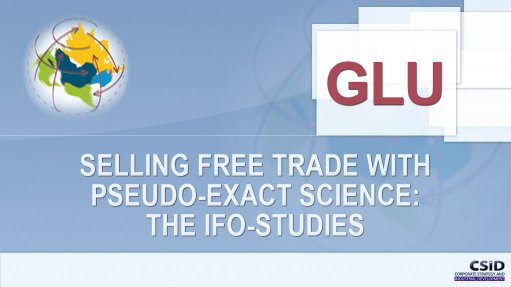
The US government and the European Commission are negotiating a Transatlantic Trade and Investment Partnership (TTIP). The trading partners push for the elimination of the tariffs, less regulation, and more rights for investors. The governments try to justify the TTIP by pointing to significant welfare gains from additional exports, higher growth, and increases in efficiency, income and employment. They draw on various economic studies which, are based on complex modelling; concluding that a TTIP would increase prosperity in both the US and the European Union.
Trade impact studies usually make use of Computable General Equilibrium models. These models have been criticised in recent years. Among the critics is a team from the Munich ifo Institute which produced two impact studies in 2013, one for the German Federal Ministry of Economics (ifo-BMWi) and the other for the Bertelsmann Foundation (ifo-Bertelsmann). We concentrate our assessment on the impact studies drawing from the ifo studies.
Download the full article above.
Written by: Stefan Beck, who holds a PhD in political science. He has recently completed a comprehensive study on TTIP.
Christoph Scherrer, Professor for Globalization and Politics at University of Kassel, Germany. He is also executive director of the International Center for Development and Decent Work and a member of the steering committee of the Global Labour University.
Published by Global Labour Column and edited by CSID at Wits University.